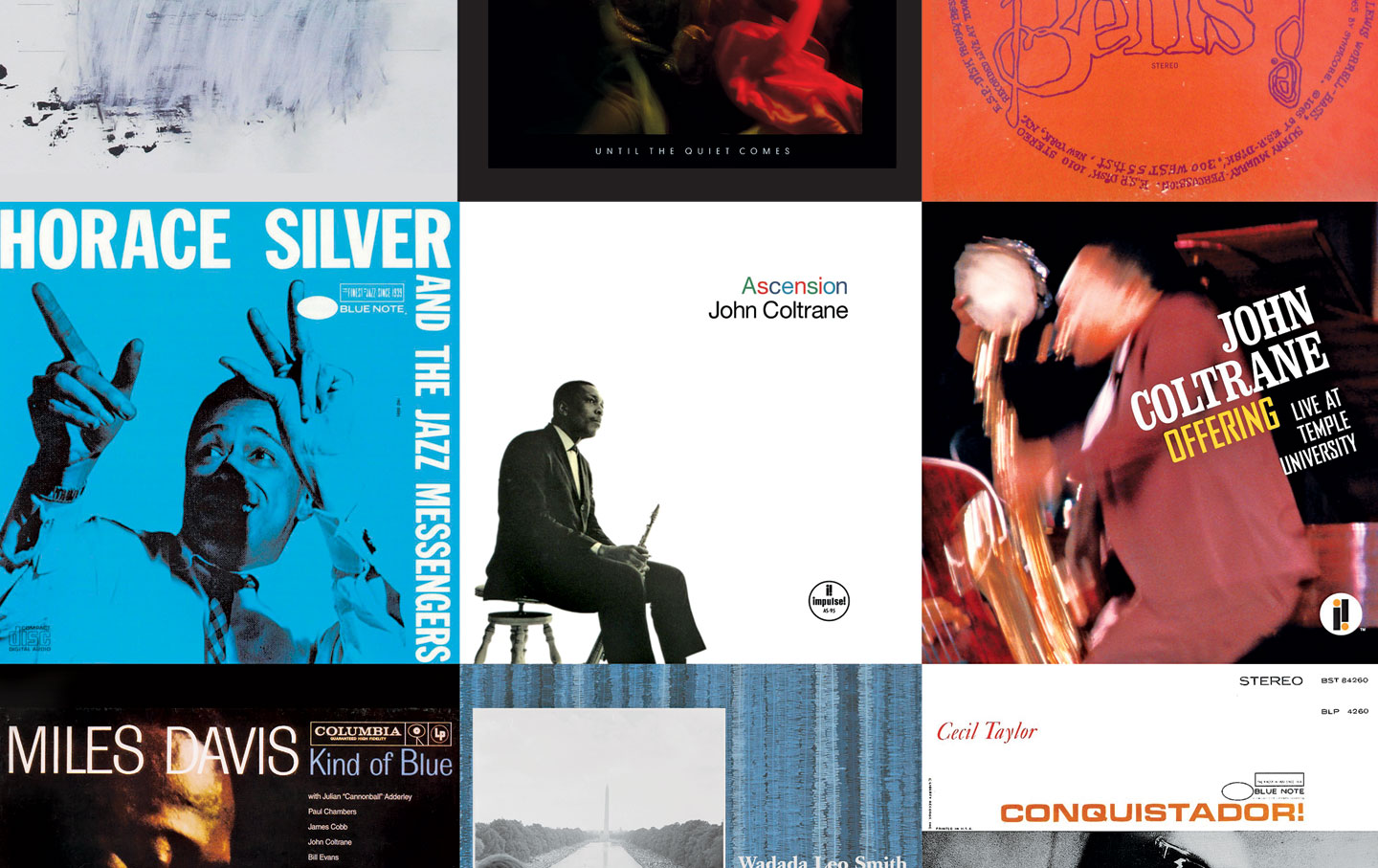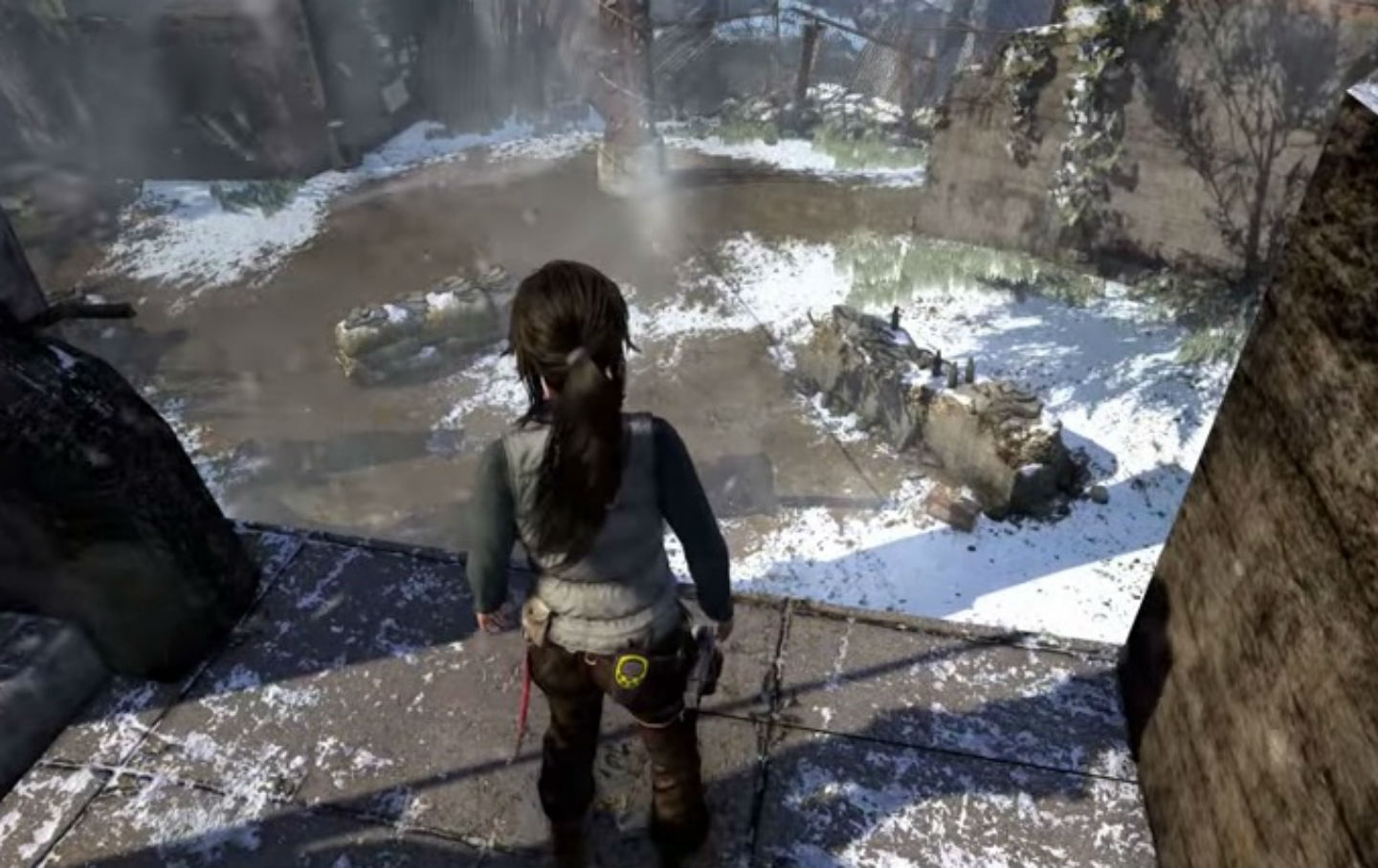Two Views of a Cadaver Room Two Views of a Cadaver Room
January 30, 1960 I The day she visited the dissecting room They had four men laid out, black as burnt turkey, Already half unstrung. A vinegary fume Of the death vats clung to them; The white-smocked boys started working. The head of his cadaver had caved in, And she could scarcely make out anything In that rubble of skull plates and old leather. A sallow piece of string held it together. In their jars the snail-nosed babies moon and glow. He hands her the cut-out heart like a cracked heirloom. II In Brueghel’s panorama of smoke and slaughter Two people only are blind to the carrion army: He, afloat in the sea of her blue satin Skirts, sings in the direction Of her bare shoulder, while she bends, Fingering a leaflet of music, over him, Both of them deaf to the fiddle in the hands Of the death’s-head shadowing their song. These Flemish lovers flourish; not for long. Yet desolation, stalled in paint, spares the little country Foolish, delicate, in the lower right hand corner. This article is part of The Nation’s 150th Anniversary Special Issue. Download a free PDF of the issue, with articles by James Baldwin, Barbara Ehrenreich, Toni Morrison, Howard Zinn and many more, here. Sylvia Plath (1932–1963) published four poems in The Nation between 1955 and 1960.
Mar 23, 2015 / Books & the Arts / Sylvia Plath

No Place for Self-Pity, No Room for Fear No Place for Self-Pity, No Room for Fear
In times of dread, artists must never choose to remain silent.
Mar 23, 2015 / Decade in Review / Toni Morrison
The Bear The Bear
April 18, 1928 The bear puts both arms round the tree above her And draws it down as if it were a lover And its choke-cherries lips to kiss goodby, Then lets it snap back upright in the sky. Her next step rocks a boulder on the wall. (She’s making her cross-country in the fall.) Her great weight creaks the barbed wire in its staples As she flings over and off down through the maples, Leaving on one wire tooth a lock of hair. Such is the uncaged progress of the bear. The world has room to make a bear feel free. The universe seems cramped to you and me. Man acts more like the poor bear in a cage That all day fights a nervous inward rage, His mood rejecting all his mind suggests. He paces back and forth and never rests The toe-nail click and shuffle of his feet, The telescope at one end of his beat, And at the other end the microscope, Two instruments of nearly equal hope, And in conjunction giving quite a spread. Or if he rests from scientific tread, ’Tis only to sit back and sway his head Through ninety-odd degrees of arc it seems, Between two metaphysical extremes. He sits back on his fundamental butt With lifted snout and eyes (if any) shut (He almost looks religious but he’s not), And back and forth he sways from cheek to cheek, At one extreme agreeing with one Greek, At the other agreeing with another Greek, Which may be thought but only so to speak. A baggy figure equally pathetic When sedentary and when peripatetic. This article is part of The Nation’s 150th Anniversary Special Issue. Download a free PDF of the issue, with articles by James Baldwin, Barbara Ehrenreich, Toni Morrison, Howard Zinn and many more, here. Reviewing Robert Frost’s first book, A Boy’s Will, in 1915, The Nation described him as “a poet by endowment,” but “a symbolist only by trade.” Frost (1874–1963) wrote four poems for The Nation in the 1920s. When he died, the sportswriter Roger Kahn wrote in the magazine of his friend: “Robert Frost is dead and my mortality and yours is thus more stark.”
Mar 23, 2015 / Books & the Arts / Robert Frost

Have We Reached the End of Jazz Itself? Have We Reached the End of Jazz Itself?
John Coltrane and other “lost” musicians of the ’60s are teaching a new generation of artists to bend time and space.
Mar 23, 2015 / Books & the Arts / Gene Seymour

Game Not Over Game Not Over
Despite the Gamergate backlash, a new generation of activists is working to end the racial, sexual and gender stereotypes promoted by the video-game industry.
Mar 23, 2015 / Books & the Arts / Helen Lewis
The Fall of Rome The Fall of Rome
June 14, 1947 The piers are pummeled by the waves; In a lonely field the rain Lashes an abandoned train; Outlaws fill the mountain caves. Fantastic grow the evening gowns; Agents of the Fisc pursue Absconding tax-defaulters through The sewers of provincial towns. Private rites of magic send The temple prostitutes to sleep; All the literati keep An imaginary friend. Cerebrotonic Cato may Extol the Ancient Disciplines, But the muscle-bound Marines Mutiny for food and pay. Caesar’s double-bed is warm As an unimportant clerk Writes I DO NOT LIKE MY WORK On a pink official form. Unendowed with wealth or pity, Little birds with scarlet legs, Sitting on their speckled eggs, Eye each flu-infected city. Altogether elsewhere, vast Herds of reindeer move across Miles and miles of golden moss, Silently and very fast. This article is part of The Nation’s 150th Anniversary Special Issue. Download a free PDF of the issue, with articles by James Baldwin, Barbara Ehrenreich, Toni Morrison, Howard Zinn and many more, here. W.H. Auden (1907–1973) contributed many poems and critical essays to The Nation between 1938 and 1951.
Mar 23, 2015 / Books & the Arts / W.H. Auden
Hound Voice Hound Voice
December 10, 1938 Because we love bare hills and stunted trees And were the last to choose the settled ground, Its boredom of the desk or of the spade, because So many years companioned by a hound, Our voices carry; and though slumber bound, Some few half wake and half renew their choice, Give tongue, proclaim their hidden name—“hound voice.” The women that I picked spoke sweet and low And yet gave tongue. “Hound Voices” were they all. We picked each other from afar and knew What hour of terror comes to test the soul, And in that terror’s name obeyed the call, And understood, what none have understood, Those images that waken in the blood. Some day we shall get up before the dawn And find our ancient hounds before the door, And wide awake know that the hunt is on; Stumbling upon the blood-dark track once more, That stumbling to the kill beside the shore; Then cleaning out and bandaging of wounds, And chants of victory amid the encircling hounds. This article is part of The Nation’s 150th Anniversary Special Issue. Download a free PDF of the issue, with articles by James Baldwin, Barbara Ehrenreich, Toni Morrison, Howard Zinn and many more, here. William Butler Yeats (1865–1939) published his first poem in The Nation in 1933; his last appeared three months after his death.
Mar 23, 2015 / Books & the Arts / William Butler Yeats

Weird Bedfellows Weird Bedfellows
In their defense of “tradition” against the liberating potential of architecture, Prince Charles and Xi Jinping find unlikely common ground.
Mar 23, 2015 / Books & the Arts / Michael Sorkin
Dream Song Dream Song
January 25, 1965 The surly cop lookt out at me in sleep insect-like. Guess, who was the insect. I’d asked him in my robe & hospital gown in the elevator politely why someone saw so many police around, and without speaking he looked. A meathead, and of course he was armed, to creep across my nervous system some time ago wrecked. I saw the point of Loeb at last, to give oneself over to crime wholly, baffle, torment, roar laughter, or without sound attend while he is cooked until with trembling hands hoist I my true & legal ax, to get at the brains. I never liked brains— it’s the texture & the thought— but I will like them now, spooning at you, my guardian, slowly, until at length the rains lose heart and the sun flames out. This article is part of The Nation’s 150th Anniversary Special Issue. Download a free PDF of the issue, with articles by James Baldwin, Barbara Ehrenreich, Toni Morrison, Howard Zinn and many more, here. John Berryman (1914–1972) wrote five essays and eight poems for The Nation between 1935 and 1970. One month after the last poem was published, he sent a letter to the editor noting the “unremitting hostility” of an unfriendly review by “this bastard,” Hayden Carruth.
Mar 23, 2015 / Books & the Arts / John Berryman
Varick Street Varick Street
March 15, 1947 At night the factories struggle awake, wretched uneasy buildings veined with pipes attempt their work. Trying to breathe the elongated nostrils haired with spikes give off such stenches, too. And I shall sell you sell you sell you of course, my dear, and you’ll sell me. On certain floors certain wonders. Pale dirty light, some captured iceberg being prevented from melting. See the mechanical moons, sick, being made to wax and wane at somebody’s instigation. And I shall sell you sell you sell you of course, my dear, and you’ll sell me. Lights music of love work on. The presses print calendars I suppose, the moons make medicine or confectionary. Our bed shrinks from the soot and the hapless odors hold us close. And I shall sell you sell you sell you of course, my dear, and you’ll sell me. This article is part of The Nation’s 150th Anniversary Special Issue. Download a free PDF of the issue, with articles by James Baldwin, Barbara Ehrenreich, Toni Morrison, Howard Zinn and many more, here. Elizabeth Bishop (1911–1979), the poet laureate of the United States from 1949 to 1950, published two poems in The Nation between 1945 and 1947, when Randall Jarrell was interim literary editor. She was a longtime friend of the more frequent Nation contributor Marianne Moore, who in a 1946 review in these pages described Bishop as “spectacular in being unspectacular.”
Mar 23, 2015 / Books & the Arts / Elizabeth Bishop
